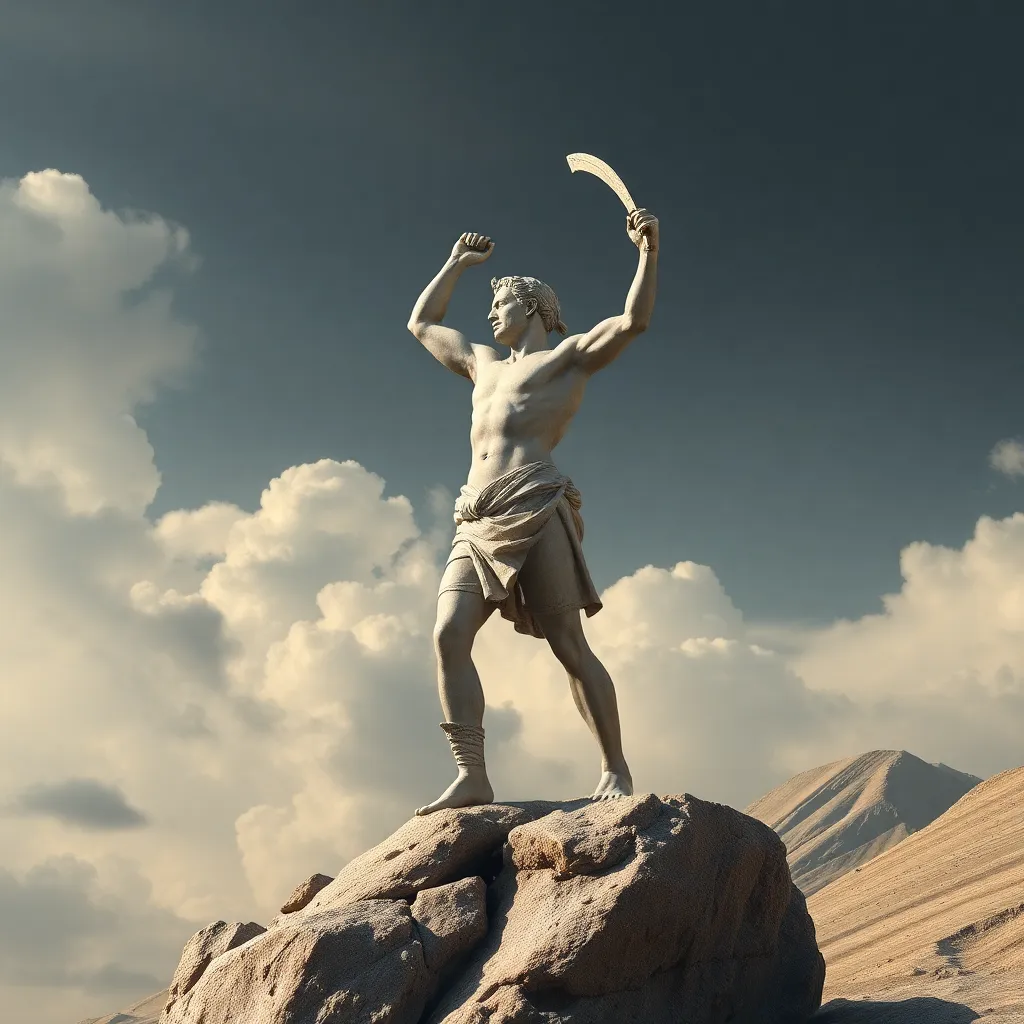Achilles’ Legacy in Modern Psychology: Archetypes and Analysis
I. Introduction
Achilles, a central figure in Greek mythology, is renowned not just for his martial prowess but also for his complex character and tragic fate. As a hero of the Trojan War, his story is imbued with themes of glory, honor, and profound vulnerability. This article aims to delve into the significance of Achilles as a psychological archetype, exploring the depths of his character and the lessons he offers in the realm of modern psychology.
The importance of Achilles extends beyond mythological narratives; he serves as a powerful symbol of the human condition—embodying both strength and weakness. By examining the connection between Achilles and contemporary psychological theories, we can gain insights into our own behavior and emotional struggles.
In this exploration, we will analyze Achilles’ myth, his representation in Jungian psychology, the implications of the “Achilles Complex,” and how these concepts can be applied in therapeutic settings.
II. The Myth of Achilles: A Brief Overview
Achilles was the son of Peleus and Thetis, a demi-god destined for greatness yet marked by vulnerability. Significant events in his life include:
- His invulnerability, save for his heel, a result of being dipped in the River Styx.
- His pivotal role in the Trojan War, where he fought valiantly for the Greeks.
- The death of his close friend Patroclus, which spurred him to seek vengeance against Hector.
- His eventual death, prophesied to occur by an arrow shot at his heel.
The symbolism of Achilles permeates literature and culture, representing the duality of heroism that combines strength with inherent vulnerability. The concept of the “Achilles’ heel” has transcended its mythological roots, becoming a metaphor for a critical weakness in an otherwise strong individual.
III. Archetypes in Jungian Psychology
In Jungian psychology, archetypes are universal symbols and themes that reside in the collective unconscious. They play a significant role in shaping human behavior and experiences. The warrior archetype, which Achilles exemplifies, represents courage, strength, and the fight against adversity.
Achilles embodies both the warrior’s physical power and an emotional vulnerability that complicates his heroism. This complexity highlights the importance of acknowledging one’s weaknesses alongside strengths, a crucial aspect of psychological health.
IV. The Hero’s Journey and Achilles
Joseph Campbell’s concept of the Hero’s Journey outlines the stages that a hero undergoes in their quest. Achilles’ story can be mapped onto this framework, showcasing various elements of the journey:
- Call to Adventure: Achilles is summoned to fight in the Trojan War.
- Trials and Challenges: He faces moral dilemmas, including the conflict with Agamemnon.
- Transformation: The death of Patroclus catalyzes a profound change in Achilles, leading him to confront his fate.
- Return: In his quest for vengeance, he achieves glory but at the cost of his own life.
Psychologically, the Hero’s Journey reflects personal growth and resilience. By confronting their struggles, individuals can learn valuable lessons about themselves, fostering personal development and healing.
The Achilles Complex in Modern Psychology
The “Achilles Complex” refers to the psychological impact of unresolved vulnerabilities. Individuals who embody this complex often fear exposure and strive to protect their weaknesses at all costs. This can manifest in various ways:
- Defensiveness in relationships.
- A tendency to avoid situations that may reveal vulnerability.
- Overcompensation through displays of strength or aggression.
Addressing the Achilles Complex in therapy involves recognizing and confronting these vulnerabilities. Therapeutic approaches may include:
- Cognitive Behavioral Therapy (CBT) to challenge negative thought patterns.
- Existential therapy to explore deeper meanings and acceptance of one’s limitations.
- Art therapy to express emotions related to vulnerability and strength.
VI. Comparative Analysis: Achilles and Other Archetypal Figures
When comparing Achilles to other hero archetypes, such as Odysseus and Hercules, distinct characteristics emerge:
- Odysseus: Known for his cunning and intellect, he represents adaptability and strategic thinking.
- Hercules: Embodies brute strength and endurance, often overcoming physical challenges.
Achilles stands out in psychological terms due to his emotional depth. His struggles with anger, loyalty, and mortality provide rich material for therapeutic exploration. The lessons drawn from these comparisons can inform modern therapeutic practices, emphasizing the integration of emotional awareness alongside strength.
VII. Applications of Achilles’ Archetype in Therapy
Incorporating the Achilles archetype into therapeutic settings can foster greater understanding and healing among clients. Some applications include:
- Using mythological narratives to encourage clients to explore their own vulnerabilities.
- Case studies of therapy influenced by Achilles’ journey, highlighting themes of loss and resilience.
- Creating a safe space for clients to discuss their “Achilles’ heels” and how these impact their lives.
The potential benefits of using mythological archetypes in psychology include:
- Enhanced emotional processing and insight.
- Greater connection to universal human experiences.
- Increased motivation for personal growth and healing.
However, challenges may arise, such as misinterpretation of myths or over-identification with archetypes, necessitating careful facilitation by trained therapists.
VIII. Conclusion
Achilles’ legacy continues to influence modern psychological thought, underscoring the relevance of archetypes in understanding human behavior. His story highlights the intricate balance between strength and vulnerability, offering valuable insights into our own lives.
By embracing both our heroic qualities and our Achilles’ heels, we can foster personal growth and resilience. The exploration of psychological archetypes, such as that of Achilles, provides a pathway to deeper self-awareness and transformation, reminding us that true strength lies in the acceptance of our complete selves.




